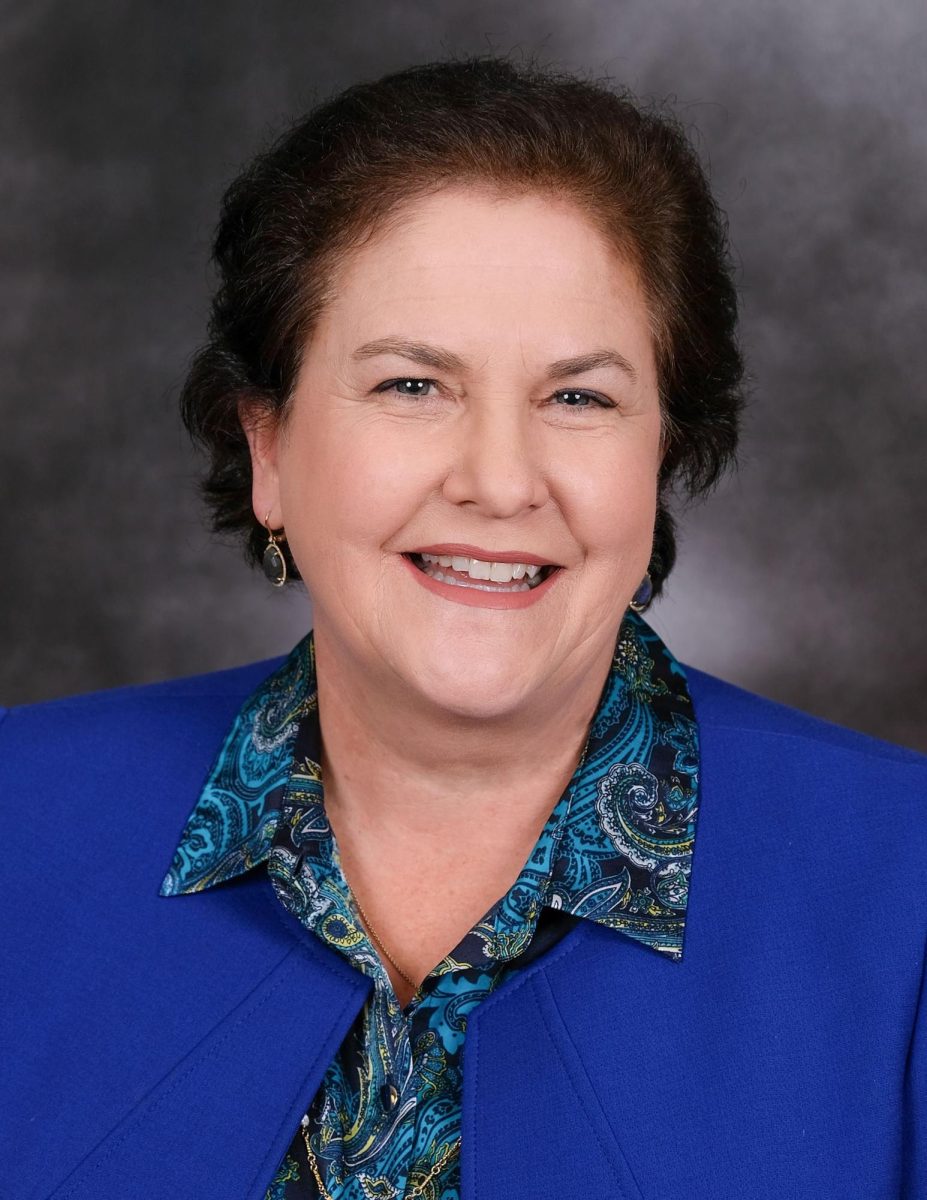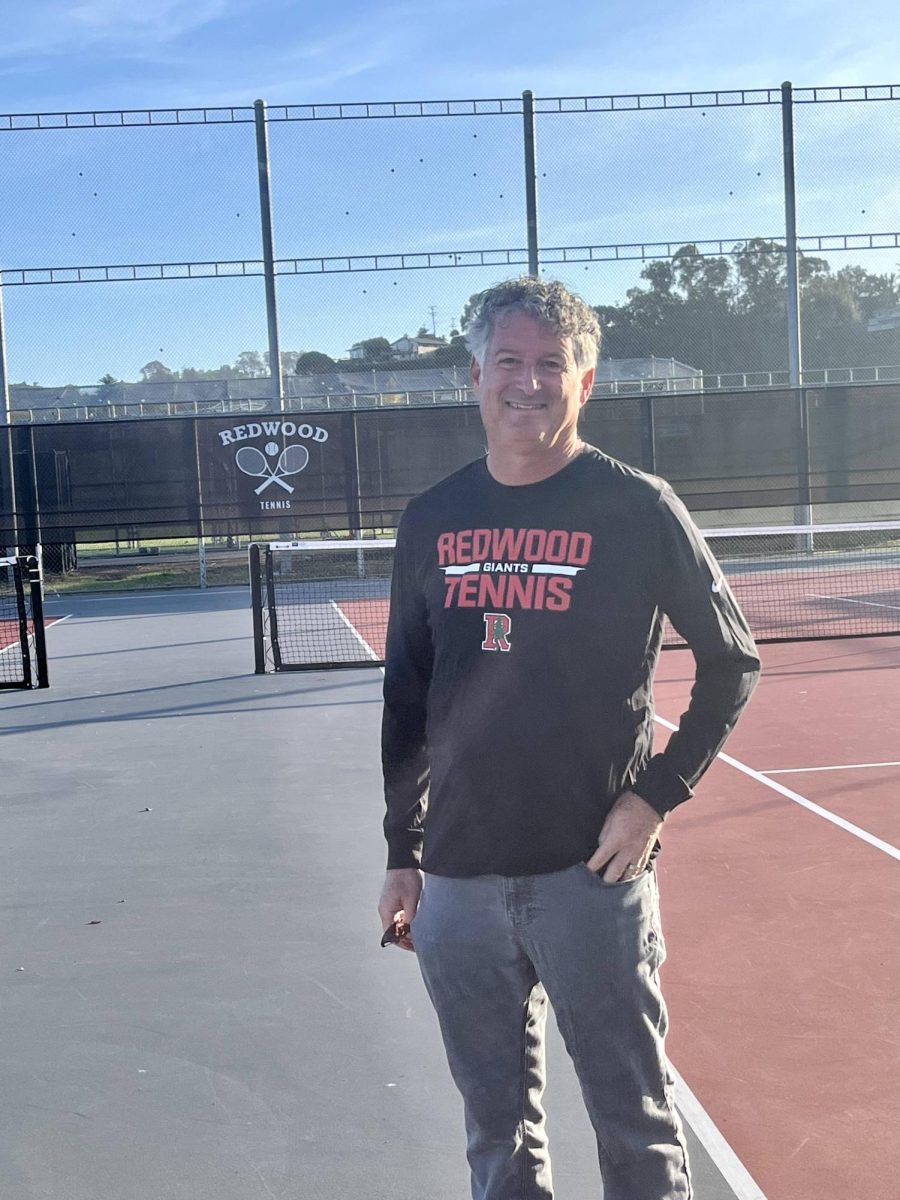
“It smells like money,” said Joey Garbarino, Marin Sanitary Service garbage-truck driver, with a laugh, referring to the garbage pit in front of him.
To Redwood High School, and many other schools in the county, trash does smell like money. Redwood currently pays roughly $5,500 a month to the MSS for garbage services.
Currently at Redwood, about 57.1 percent of the waste products produced on campus go directly to landfill, 6.8 percent is recyclable paper, 31.4 percent is cardboard and 4.6 percent is plastic/can/glass recycling.

By reducing the amount of trash Redwood produces and increasing the amount of waste Redwood recycles and composts, monthly costs would be brought down.
Soon it will be the law for Redwood to divert at least a portion of its organic waste away from the landfill.
AB-1826, which takes effect April 1, 2016, will require businesses that produce at least eight cubic meters of organic waste to arrange for composting services.
However, Zoe Pearl, the recycling programs coordinator for Marin County schools and director for tours of the MSS in San Rafael, worries that the law will not be very effective since it is difficult to monitor. In addition, the law does not specify a certain amount of waste that must be diverted from the landfill in order for businesses to be considered compliant.
“It’s kind of a tough law because how are you supposed to know if you produce eight cubic yards of organic waste? Is someone looking through your garbage and measuring that?” Pearl said.
Nevertheless, Pearl believes that the law will motivate Redwood and other schools in the area to start putting more focus on how much they recycle.
“I think that a lot of schools are kind of kicking it into gear now that they know that there’s a law in place,” Pearl said.
Pearl has been working with the business officer of the Tamalpais High School Unified School District in order to reinforce the importance of implementing recycling and composting programs.
“Hopefuly once they see that in April it’s the law that you have to be composting, they start telling maybe the principal or admin that they have to say yes,” Pearl said.
Pearl hopes to promote understanding about the wastefulness that occurs when no effort is made to recycle.
“I want everyone to know that everything you put into a garbage can—it doesn’t get sorted. It will all go to the landfill,” Pearl said. “When you throw [trash] into a garbage can, imagine you are throwing it into the ground, because it’s going to go get buried tomorrow. What a waste!”
However, Redwood faces a variety of challenges that prevent it from being able to recycle and compost to an ideal extent.
One hurdle is the lack of effective recycling in the eating areas at Redwood.
In order to spur a movement toward recycling, members of the Environmental Action Club have recently created a petition to bring back recycling bins in the eating areas of Redwood.
“It’s a little ridiculous,” said senior Henry Hood, a member of the Environmental Action Club who co-created the petition. “We realized that we’re more conscientious with our solar program and how we’re conserving electricity at school and yet we don’t have something as simple and basic as recycling.”
Redwood alumni Bailey Ferguson, who graduated in 2015, fought to have recycling bins spread throughout the eating areas during the 2014-2015 school year to decrease the amount of landfill waste generated by the school and lower the costs paid to the MSS.
Yet, at the beginning of the school year they were removed by the custodians because students failed to properly sort waste between the bins, according to Tim Mullery, head custodian at Redwood.

Both Redwood’s Environmental Action Club and the custodial staff found that many students would throw trash in the recycling bins and recycling in the trash bins, leaving custodial staff to sort through the bins.
“Kids don’t really care that much,” said senior Nathan Orwig, a member of the Environmental Action Club. “Hopefully by raising awareness about how much recycling really does in the big scope of things, kids will be more enticed to [recycle] and realize how easy it is to do.”
Data from a recent Bark survey suggests that students would be willing to make an effort to recycle properly. Ninety-two percent of students recycle at their homes, and 75 percent say that they would actively try to recycle at Redwood if there were bins available.
The club hopes that by making the bins more available and convenient, students will recycle more.
“[We are] making it more convenient for the students so there aren’t really any excuses for them not to be doing it right,” said senior Marguerite Spaethling, a member of the Environmental Action Club.
In addition, the Environmental Action Club plans to raise awareness about how to recycle properly in order to promote understanding and improve the effectiveness of the bins.
“What we’re planning on doing is working with admin and with custodians to make sure we can start an ad campaign to let students know to not throw trash in the recycling,” Hood said. “And if you don’t know if it should be recycled, at least just throw it out to keep our recycling clean.”
The custodians were willing to put in the effort to make the recycling bins effective, and would be willing to do so again if there were a way to make the bins successful, according to Mullery.
Mullery noted that the recycling programs that have been implemented in the past have started off strong, but taper off as the year progresses.
Orwig believes that it would take a major change in the attitude of the Redwood community in order for it to participate in reducing waste at the school.
“Mostly it’s just a cultural shift at the school to be more eco-friendly,” Orwig said. “The school has done that—putting in solar panels is a sign that the school wants to be more eco-friendly. You would suspect with such an educated student body that [the students] would be more aware of how easy it is.”
Orwig believes that a process for ASB allocation of funds which he described as “poorly designed” has been a prohibiting factor in his club’s ability to work to reduce Redwood’s carbon footprint.
One incident in particular, in which ASB denied the allocation of $300 so that the club could purchase devices to decrease energy consumption from computers and other appliances on campus, was particularly frustrating for Orwig.
“They said we should raise the money ourselves,” Orwig said. “And we were a little besmirched because we were like, ‘Wait, we’re doing this for the school, and we’re going through all the initiatives to help the school, and help them save money. Why don’t you guys want to fund us?’”












